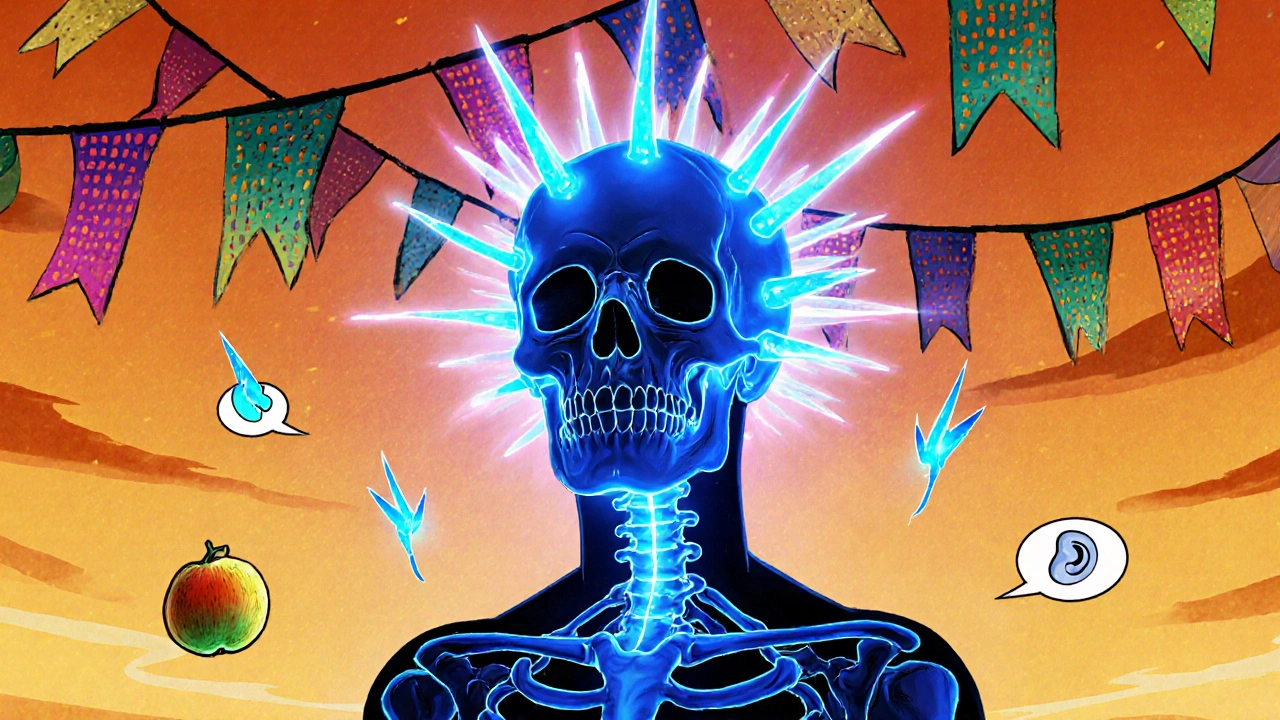Glossopharyngeal Neuralgia: Causes, Triggers, and Treatment Options
When you feel a sharp, electric shock in your throat, ear, or tongue—out of nowhere—it’s not just a sore throat. It could be glossopharyngeal neuralgia, a rare nerve disorder causing intense, stabbing pain in the throat and ear region. Also known as GN, it’s often mistaken for toothaches or heart problems, but it’s all about the glossopharyngeal nerve, the ninth cranial nerve that controls sensation in the back of the tongue, tonsils, and middle ear.
This pain doesn’t come from infection or injury. It’s triggered by something pressing on the nerve, like a blood vessel, tumor, or even just normal aging. People describe it as a sudden jolt that lasts seconds but feels like a knife to the throat. Swallowing, talking, coughing, or even laughing can set it off. It’s not common—only about 0.5 to 1.3 cases per 100,000 people—but when it hits, it changes your life. You start avoiding food, water, even talking. And because it’s rare, many doctors don’t recognize it right away. That delay can turn a manageable condition into a chronic nightmare.
What makes glossopharyngeal neuralgia, a rare nerve disorder causing intense, stabbing pain in the throat and ear region so tricky is how closely it mimics other conditions. It’s often confused with trigeminal neuralgia, a more common nerve pain affecting the face, but while trigeminal hits the cheek and jaw, glossopharyngeal strikes deeper—behind the tonsil, near the base of the tongue. Diagnosis usually needs an MRI to check for vascular compression or lesions. Blood tests won’t help. X-rays won’t show it. You need imaging that sees nerves, not bones.
Treatment starts simple: carbamazepine, an anticonvulsant originally for seizures, now the first-line drug for nerve pain. It works for about 70% of people, but side effects like dizziness, fatigue, or rash can make it hard to keep taking. If that fails, doctors may try other antiseizure meds like oxcarbazepine or gabapentin. Some patients get relief from nerve blocks—injecting numbing agents near the affected nerve. But if pain keeps coming back, surgery might be the only answer. Microvascular decompression, where surgeons move the blood vessel off the nerve, has a high success rate. It’s not risk-free, but for many, it’s the only way to get back to eating without fear.
You won’t find this condition in every health blog. But if you’ve been told it’s "just stress" or "all in your head," you’re not alone. The posts below come from people who’ve lived it—patients who found relief, doctors who’ve seen the patterns, and researchers who’ve dug into why standard painkillers fail. You’ll read about real cases, what actually works after the first pill doesn’t, and how to talk to your doctor when no one seems to take your pain seriously. This isn’t theory. It’s what happens when a nerve gets pinched—and how to fix it.
- Archer Pennington
- 13
Baclofen for Glossopharyngeal Neuralgia: What You Need to Know
Baclofen may help reduce severe throat pain from glossopharyngeal neuralgia when standard drugs fail. Learn how it works, dosing tips, side effects, and real patient outcomes.
Read more
